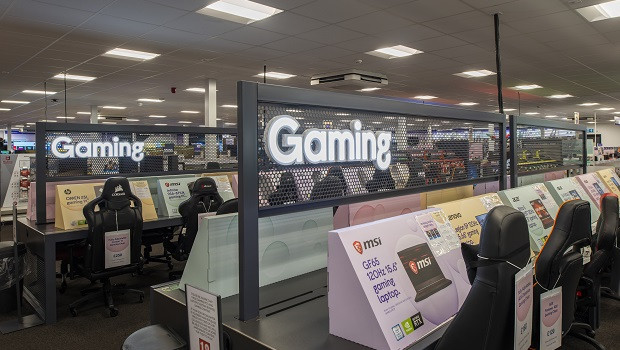Broker tips: Cerillion, Standard Chartered, Currys, Compass

Analysts at Berenberg raised their target price on software firm Cerillion from 1,400.0p to 1,500.0p on Monday on the back of the group's "record year".
Revenues came to £39.2m, with growth in the period driven by record orders of £30.8m from existing customers, while adjusted underlying earnings printed at £18.1m, which represents a margin of 46.2%, and adjusted pre-tax profits were £16.8m, 8% higher than consensus estimates.
Cerillion's new customer sales pipeline grew by 16% to £243.0m and its back-order book was at £52.5m as of November following recent new contract wins – both of which were record figures.
The German bank increased its FY24 adjusted EBITDA and earnings per share forecasts by 4% and 7%, respectively, and noted the shares were trading on a 28.6x FY24E price-to-earnings ratio.
"Cerillion continues to deliver consistent organic upgrades, supported by record demand and a high proportion of revenue visibility driven by its record back-order book," said Berenberg.
Goldman Sachs has upgraded its rating on multinational banking group Standard Chartered from 'neutral' to 'buy', saying that upside risk wasn't yet reflected in the share price.
The stock currently trades close to record-low valuations, despite a near-decade-high return on tangible equity of 11% next year, and offering a 10% total capital return yield, Goldman said. Meanwhile, StanChart is set to show a "rare out-performance relative to its bank peers over the next two years", according to Goldman.
Analysts, who also cut their target price on the stock from 879.0p to 868.0p, expect the bank to deliver a double-digit compound annual growth rate in earnings per share and a 2.7% improvement in return on equity, compared with low single-digit EPS CAGR and declining ROE at peer banks.
Goldman said that improvements in EPS and ROE will be driven by four factors: an unwind of loss-making hedges put-on by the group during late 2021, starting in February 24; a better outlook for non-funds income; a new chief financial officer to be appointed next year who could focus on the outsized corporate office function relative to its peers; and the possibility for continued buyback with capital now at the top-end of the target range.
Third-quarter results from StanChart last month came in about 10% below consensus forecasts on a pre-tax profit level. "We expect 4Q23 results delivery to be cleaner, in-line with expectations, and to be further supported by a circa $750.0m buy-back announcement. The stock tends to react to earnings and can rise into a potential buy-back," Goldman said.
RBC Capital Markets upgraded Currys on Monday to 'outperform' from 'sector perform' and lifted its price target on the stock to 70.0p from 60.0p as it said it was "becoming investable again".
"Currys' financial leverage and travails in the Nordic region have left it firmly in the investor 'no-fly zone' in recent years," RBC said. However, the retailer's sale of its Kotsovolos business in Greece will leave it with a net cash position.
The Canadian bank pointed out that Currys trades at a "lowly" rating of less than 4x enterprise value/underlying earnings, at the lower end of its historical range, something it thinks fails to capture its "strong position in the UK and self-help and recovery potential in the Nordics".
It also noted the recent stake-building in the sector, with Frasers Group having built a stake of around 13% in Currys but said the consumer electricals subsector faces a number of long-running challenges, including a low margin for error, very strong supplier power "and the often commodity nature of the product".
"But Currys remains a strong omnichannel player, with high market shares of 28% in the Nordic and 24% in the UK," it said. "It has scale and distribution advantages, plus strong supplier support to showcase products. These should serve it well in a more benign outlook for interest rates in major markets."
Compass shares took a hit on Monday after the catering group underwhelmed the market with its annual results, but it wasn't enough to deter Shore Capital which reiterated a 'buy' rating on the stock.
Shore analyst Greg Johnson said the results – which showed a 30% increase in underlying operating profits to £2.1bn with organic growth of 19% and a 60 basis-point operating margin improvement to 6.8% – were in line with expectations and the company's prior guidance.
Meanwhile, Compass' outlook statement pointed to a further 13% in operating profit in the current fiscal year ending September 2024, which should result in a 2% upgrade to current earnings per share estimates, along with an additional $500.0m share buyback.
"We see the results as further evidence of the long-term cash compounding qualities of the Group, which should deliver low teens EPS growth over the medium term," Johnson said.
Johnson also highlighted that the stock trades at under 21 times current-year earnings, which is within its historic trading range. "We believe [the valuation] is more than merited given the higher growth profile, especially were inflation to moderate (supporting margin development) and bond yields to fall."